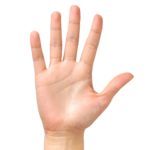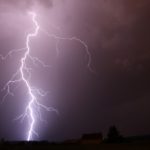5 sentences with “avoir mauvaise mine”
Après une nuit blanche, il a mauvaise mine et semble épuisé. After a sleepless night, he looks unwell and appears exhausted. Suite à sa maladie, elle a mauvaise mine et…
French grammar tip: Using ‘Quoi que’ for Concessions
‘Quoi que’ means ‘whatever’ or ‘no matter what’ and is used to introduce a concession. It is often followed by the subjunctive. For example, ‘Quoi que tu dises, je ne…
L’info du jour : Influence of French Television and Cinema
French television and cinema reflect and shape the cultural and social narrative of the country. France’s global cinematic influence is evident from the pioneering Lumière brothers to contemporary directors like…
French grammar tip: Using ‘Tellement’ for Emphasis
‘Tellement’ means ‘so much’ or ‘so many’ and is used for emphasis. For example, ‘J’aime tellement ce film’ (I love this movie so much). ‘Tellement’ signifie ‘so much’ ou ‘so…
French conjugation tip: The Imperfect for Describing Past States of Being
The Imperfect (Imparfait) is often used to describe states of being or conditions in the past. For example, “Il était fatigué après le voyage” (He was tired after the trip)…
French video course: 5 minutes per day | Conjugation | Futur simple
5 minutes per day | Conjugation | Futur simple https://www.french4me.net/courses/1713206 To access this course and all the courses of French4me.net, you will need to purchase the Full Access Unlimited: https://www.french4me.net/p/lifetime-access-unlimited
French vocabulary tip: French Political Philosophy Vocabulary
Political philosophy explores fundamental questions about government, justice, and rights. Knowing the vocabulary in French will help you discuss political theories and ideologies. Key terms include “la philosophie politique” (political…
5 sentences with “avoir le vent en poupe”
Depuis le lancement de son entreprise, elle a le vent en poupe et connaît un succès croissant. Since the launch of her company, she has the wind in her sails…
French grammar tip: Understanding ‘De plus en plus’ for Increasing Intensity
‘De plus en plus’ means ‘more and more’ and is used to describe an increasing intensity or quantity. For example, ‘Il fait de plus en plus froid’ (It is getting…
L’info du jour : Impact of French Art Schools
French art schools have historically been at the forefront of global art education, shaping generations of artists who have gone on to influence various art movements. Schools like the École…
French grammar tip: The Role of ‘Peut-être’ for Uncertainty
‘Peut-être’ means ‘maybe’ or ‘perhaps’ and is used to express uncertainty or possibility. For example, ‘Peut-être qu’il viendra ce soir’ (Maybe he will come tonight). ‘Peut-être’ signifie ‘maybe’ ou ‘perhaps’…
French conjugation tip: The Subjunctive in Relative Clauses of Non-Existence
The Subjunctive is used in relative clauses where the existence of the antecedent is uncertain or negated. For example, “Je cherche quelqu’un qui puisse m’aider” (I am looking for someone…






